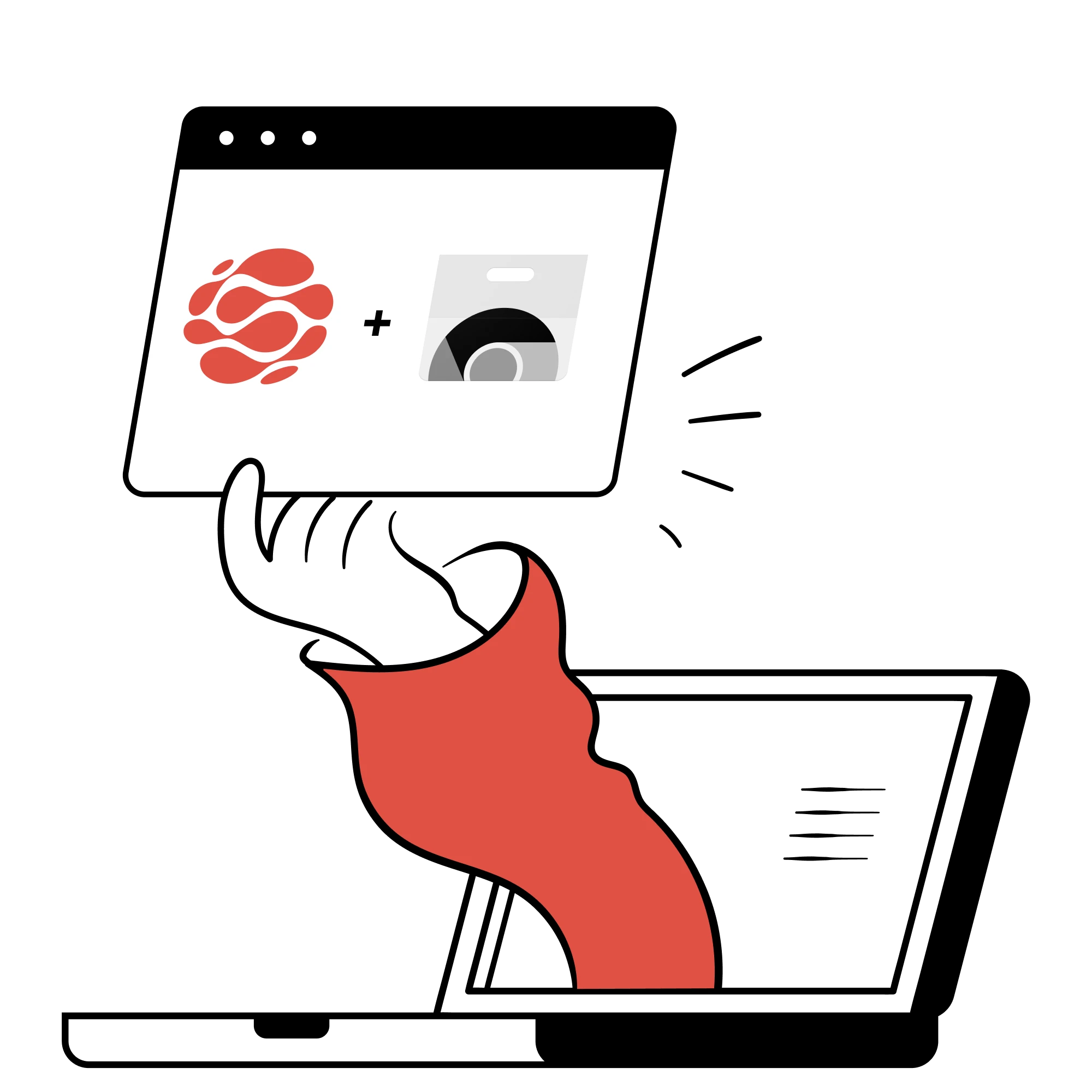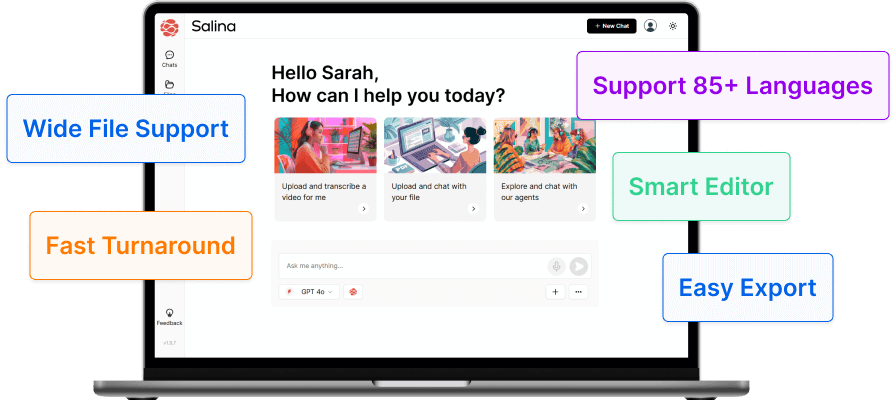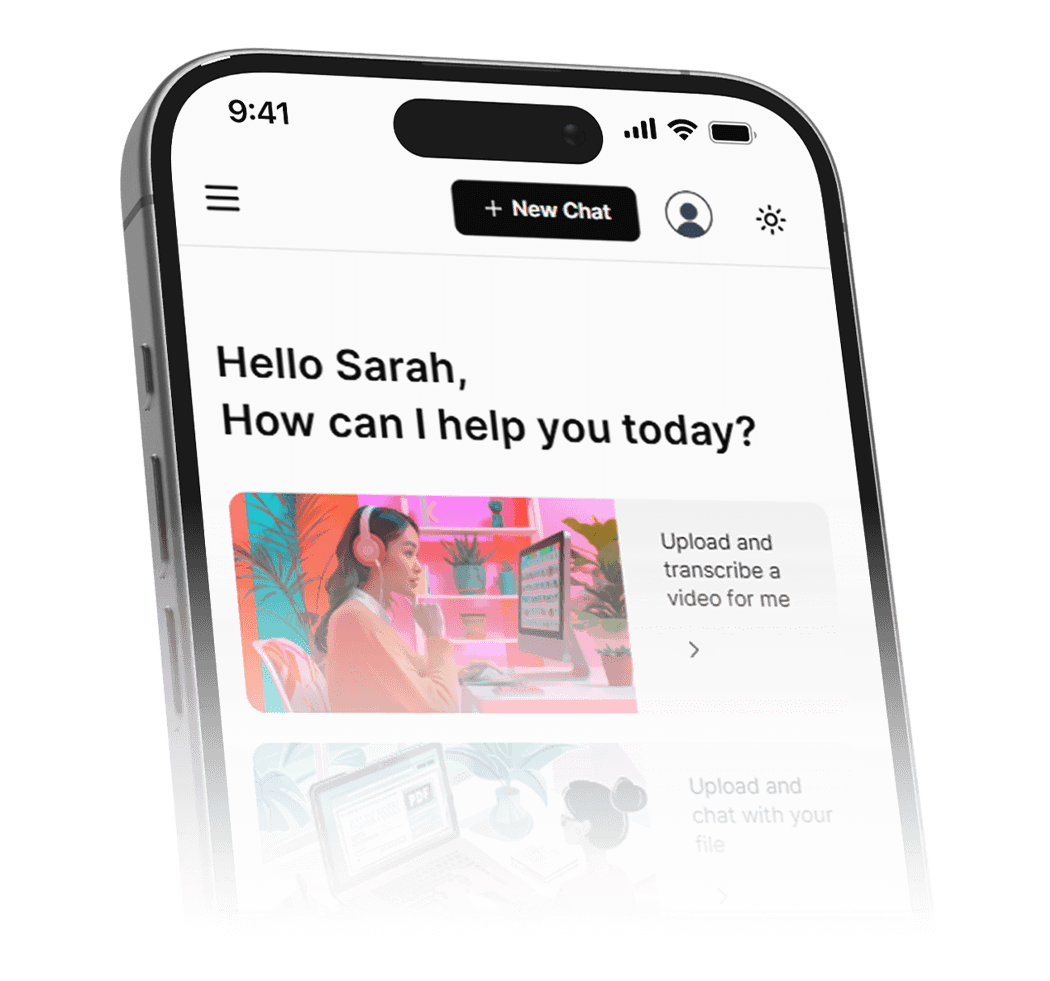Look, if you’re like most independent podcasters, you’re probably doing everything yourself. Your unique voice, those clever references, the way you explain complex topics—that’s what makes your show special. And now you’re thinking about reaching international audiences. Exciting, right? Until you realize what it actually takes to translate all that content while keeping your style intact.
The Reality of Being a Solo Podcaster
Let me paint a picture you probably know too well. Your days are already stretched thin, recording episodes between shifts at your 9-5 job. You’re spending countless hours researching and scripting to get every detail right, while somehow managing to keep up with social media across multiple platforms. Then there’s the endless cycle of writing show notes, crafting newsletters, and editing audio until it’s perfect. Every minute of your day is accounted for, carefully balanced in a juggling act that somehow works—most of the time.
And now translation? It feels like adding another full-time job to your already packed schedule. Just thinking about it is.
Why Traditional Translation Methods Hold Podcasters Back
Most podcasters start with one of two approaches: either using free machine translation tools (like Google Translate) or hiring freelance translators. Both paths lead to frustration. Machine translation strips away your personality and turns your carefully crafted content into robotic-sounding speech. Freelance translators, while skilled, often lack the context of your show’s style and niche—meaning you spend hours explaining references and industry terms.
The process becomes a constant cycle of translations and revisions. You’re either fixing machine-generated mistakes or briefing new translators on your show’s context. And after all that work, your content still sounds like it was pieced together by someone who’s never even heard your show.
Also Read: AI vs. Human Translation: The Ultimate Battle or a Symphony of Synergy?
Preserving Your Voice Across Languages
This is where Salina stands apart. Built specifically for content creators who refuse to sacrifice authenticity for scale, Salina approaches translation differently. Unlike traditional tools that simply convert words, Salina understands that your podcast’s success lies in the subtle details—the way you explain complex topics, your humor, and the cultural references that make your show uniquely yours. Here’s exactly how Salina preserves your authentic voice:
Time-Saving Automation
Your schedule is already packed—we get it. That’s why Salina focuses on making translation efficient without compromising quality. Think of it as having a team of expert translators at your fingertips:
- Convert hour-long episodes into accurate transcripts within minutes
- Translate your content into new languages with resonance
- Keep your content flowing with efficient episode processing
Cultural Context Preservation
Context makes your podcast unique. Salina doesn’t just translate words; it captures the essence of your content. When you’re breaking down complex topics or sharing stories, the system preserves your style and ensures your insights hit home in every language. Every cultural reference, every industry term, and every idiomatic expression gets the attention it deserves across 85+ languages:
- Smart translation that captures the heart of your message
- Preservation of cultural references and expressions across 85+ languages
- Careful handling of industry-specific terminology
Quality Control Made Simple
Your reputation is built on quality, and maintaining that across languages matters. Salina’s intuitive tools help you fine-tune translations and ensure consistency across episodes. You stay in control of your content’s quality, no matter which language your listeners prefer:
- Smart editor for reviewing and refining translations
- Consistency checks across episodes
- Export your transcripts in multiple formats including .srt, .vtt, and .txt
From Solo Creator to Global Success
While these features sound promising, you might be wondering: can independent podcasters really succeed globally? Let’s look at how two podcast industry leaders – Wondery, America’s largest independent podcast publisher, and Podimo, one of Europe’s leading podcast platforms – show us what’s possible when translation is done right.
When Translation Works: Real Success Stories
The Partnership
When Wondery wanted to take their hit shows global, they partnered with Podimo to translate several of their shows, including “The Dating Game Killer.” This collaboration proved that great content can resonate across borders—when translated thoughtfully.
What Both Companies Discovered
- An astounding 90-96% of listeners prefer content in their native language—even in markets with high English proficiency
- Success in initial markets (3-6 languages) built confidence for expansion into others
- Different translation approaches work for different shows—voice actors aren’t always the answer
- Format matters: narrative and scripted shows translate better than personality-driven content
Key Lessons for Independent Podcasters
Their collaborative experience reveals three crucial insights:
- Cultural adaptation matters more than perfect word-for-word translation
- Preserving emotional impact is crucial for keeping listeners engaged
- Native language content performs better, even in English-proficient markets
Your Path to Global Reach
The podcast industry is becoming increasingly global, and with Salina, you don’t need Wondery’s resources to achieve similar results. Here’s what your journey could look like:
- Start Strong
- Reach audiences in 85+ languages while maintaining your authentic voice
- Save valuable time on translation and transcription
- Build your international presence step by step
- Scale Smart
- Focus on creating great content, not managing translations
- Use the same tools that power larger networks
- Grow your audience organically across languages
Ready to Take Your Voice Global?
Start your free trial today. See how Salina can help you reach international audiences while staying true to your style. Because your unique voice deserves to be heard, in every language.
Salina is a podcast translation tool that specializes in preserving cultural authenticity across 85+ languages. We ensure every cultural reference, industry term, and nuanced expression maintains its meaning and impact as your stories reach global audiences, turning hours of translation work into minutes. Start sharing your stories with global audiences today.




